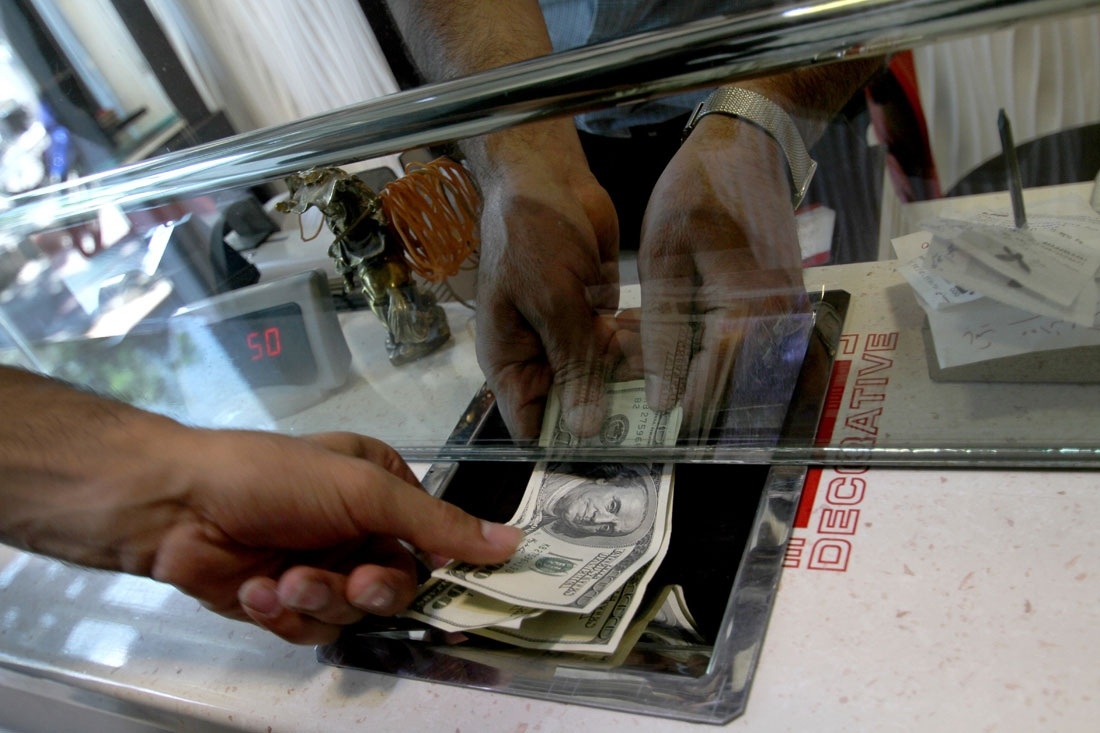Iran Gov't Restricts Access to Cheap Forex

EghtesadOnline: Seventy days after the government decided to unify the US dollar's exchange rate at 42,000 rials and assure importers that all hard currency needs would be fulfilled at that rate, it is abandoning those promises in favor of a more restricted list eligible to receive foreign exchange at that cheap rate.
Central Bank of Iran Governor Valiollah Seif has affirmed that as per the new forex policy, the government will soon prioritize and classify imported goods into three categories.
Based on the decision announced by Seif after late Tuesday's Money and Credit Council, foreign exchange will only be allocated to goods branded as "essential and vital", "raw materials and intermediate goods" and "goods with lower priority".
According to a statement by the Islamic Republic of Iran Customs Administration, the list of essential goods, which includes staples such as oil, rice and wheat, will meet their currency needs from oil revenues at the 42,000-dollar rate that will be further subsided to 38,000 rials, Financial Tribune reported.
The next priority includes "raw materials and intermediate goods," whose currency needs will be met from the export earnings of petrochemicals, steel and mineral products.
Goods included in the second category, including raw materials, machinery and equipment, will be provided forex at the rate of 42,000 rials.
The third category pertaining to consumer products will receive hard currency from exports that are not required to be registered in Nima–the central bank's Integrated Forex Deals system.
According to IRIC, these goods will receive their hard currency at the rate of 42,000 rials plus the price of the export declaration rate that will be negotiated between the exporter and importer.
The decision comes after heightened criticism by merchants and analysts who bashed the government for its insistence on providing all imports at the unified rate of 42,000 rials, which has been slammed as unrealistic.
The cheap rate, they argued, would only give rise to rent-seeking by those who have access to it and who could then sell it at black market prices and reap huge profits.
Against Rent-Seeking
Exporters also grumbled that this would give them little incentive to sell their foreign exchange in the Nima system–considered mandatory–when they see importers selling goods at the inflated market rate.
Currently, each US dollar is reportedly being traded for as much as 75,000 rials in Tehran's black market. The government has not recognized this market since it unified the rate on April 9.
Another reason for the government restricting access to cheap currency is the huge wave of demand for imports triggered after the unification decision. According to Government Spokesman Mohammad Baqer Nobakht, from the beginning of the current Iranian year on March 21 until May 27, nearly $20 billion of import orders have been registered.
A comparison of official data shows that $10 billion worth of import orders were filed in 10 days.
However, in an interview with Tehran Chamber of Commerce, Industries, Mines and Agriculture, IRIC's chief, Foroud Asgari, said the country still has a trade surplus.
According to Asgari, from the start of the start of the current Iranian year until June 17, Iran's exports stood at $11.24 billion and recorded a 21% increase compared with the previous year. During the same period, $9.98 billion worth of goods were imported, which registered a 5% decline year-on-year.
Asgari also acknowledged that demand for imports at the 42, 000-rial rate had created a backlog of demand and said in order to manage demand, the allocation of hard currency for these goods should be prioritized.
The imposition of curbs on the list of goods for the allocation of hard currency also highlights the fact that these government measures are in response to the looming US sanctions after it withdrew from the Iran nuclear deal last month.
IRNA reported on Friday that certain luxury goods like cars and gold coins will not receive any hard currency for imports. It also quoted officials as saying that certain goods might face bigger tariff walls or outright bans.
US President Donald Trump pulled out of the international nuclear deal with Iran on May 8 and said he would reimpose sanctions within 180 days, prompting several European companies to announce they would end business with Tehran before the Nov. 4 deadline.


